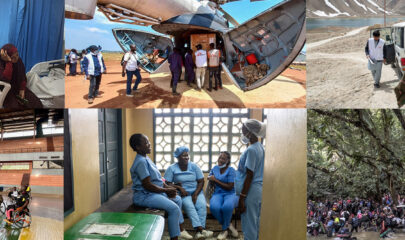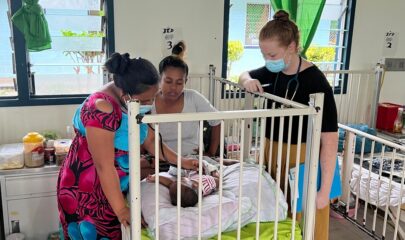
European Union states and other governments for access to healthcare and for the dignified treatment of people fleeing crises.
Mediterranean Sea, 2022.
“We are not sure that words can always save lives, but we know that silence can certainly kill.” These words, delivered by Doctors Without Borders/ Médecins Sans Frontières (MSF)’s president at the reception of the Nobel Peace Prize in 1999, capture the essence of MSF’s motivation to speak out, both then and now. They also reveal our perpetual conundrum: how do we know our voice will make a positive difference? And is it worth it, knowing our public advocacy – or bearing witness and speaking out – can be risky?
In speaking out, MSF always aims to remain true to our principles of impartiality and neutrality. Whether we are speaking out to authorities, the public, pharmaceutical companies or even other humanitarian organizations, our intent is to reveal the nature of peoples’ suffering, their needs, and at times to call for action. It is not to take sides.
But that is a difficult line to toe because exposing the impact of violence, repression or discriminatory policies or actions often implies blame. And when governments and armed groups feel blamed they are less likely to welcome our presence and may create bureaucratic barriers, harass our staff, even tolerate or, in extreme cases, perpetrate acts of violence against us or the communities we work with.
“People’s experiences are the story…”
There are also ethical considerations. On who’s behalf do we speak? Do we perpetuate victimhood and saviourhood or racial and other stereotypes? Do we, through the way we tell stories, reduce people to passive recipients of assistance? When we advocate, we must actively work to avoid these harmful outcomes, and keep the people we assist, their voices and their inherent dignity, at the centre of everything.
Silence is easier. But we refuse silence because the wounds and diseases we treat tell a story. So too do the people who come to MSF’s clinics. Last year in Tigray, Ethiopia, I spent hours listening to people recount the violence they had experienced during the conflict, their fear and also their hope.
As one woman put it, “I had dreams, and even with the war I didn’t stop dreaming.”
People’s experiences are the story, and without an amplifier they might otherwise remain unheard. MSF amplifies in the belief that voicing what we hear and witness might generate media attention, more resources or the political resolve to change the harsh circumstances, policies and violence to which people are exposed. Speaking out can be risky, but silence can be far worse.
We are in a unique position to speak out owing to another of MSF’s basic principles: independence. MSF’s financial independence affords us the space to speak unequivocally about what we see, and the credibility to be listened to. In this way, your support to MSF is what makes this unique form of public advocacy possible.
In this edition of Dispatches, you will read about some of the ways your support allows MSF to speak out, from revealing the more immediate life-threatening conditions for people trapped in Libyan detention centres, to the stigma-reducing advocacy related to noma in West Africa, to pressing the Canadian government to rethink the profit-based medical research and development system.
PLEASE DONATE NOW
Whatever positive change MSF is able to provoke through our voice would not be possible without the help of our community of supporters. If you are able, please donate now


